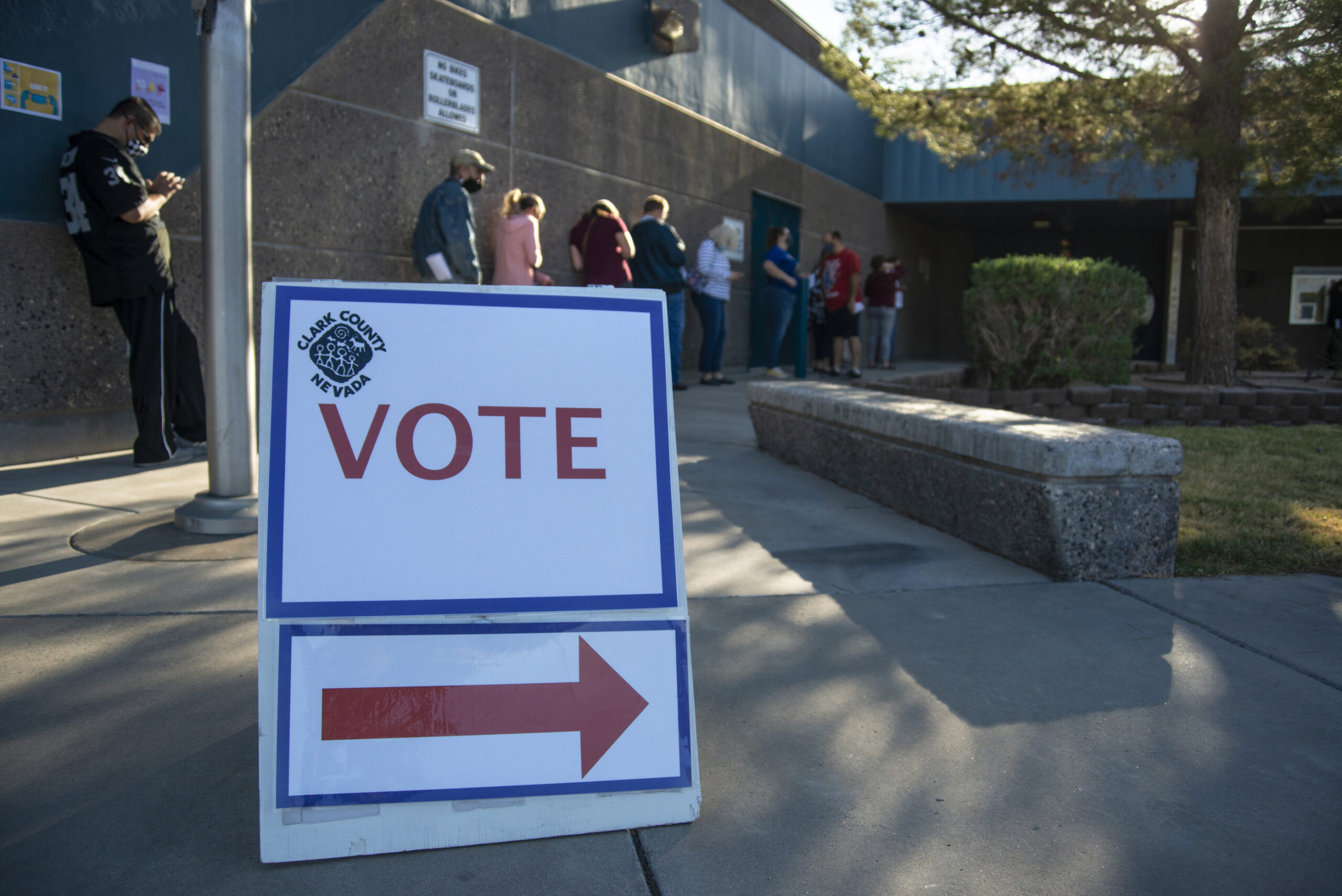The ‘voter fraud’ narrative haunting the GOP

Telling Republicans their votes haven’t counted for diddly-squat due to rampant fraud, then asking them to go cast a ballot, seems a bit counterintuitive for a “get out the vote” campaign.
And yet, among at least some Republicans, that has been the message during much of the 2022 primaries. In February, Republican candidate for secretary of state, Jim Marchant, told a crowd in Reno that their vote “hasn’t counted for decades.”
“You haven’t elected anybody. The people that are in office have been selected. You haven’t had a choice,” Marchant said.
For someone whose political ambitions depend on supporters actually casting ballots, the comments represent a pretty strong cognitive dissonance. “Your vote doesn’t matter, now go vote for me” is, after all, a helluva campaign slogan. And while Marchant is among the most extreme peddlers of such election conspiracy theories, the underlying assertion — that 2020 was rigged — is nonetheless a mainstreamed idea within Nevada’s Republican Party.
It’s therefore unsurprising to see that recent polls show confidence in the upcoming election isn’t exactly soaring among Republicans.
However, judging by the relatively robust turnout during early voting in the primary, many of those voters are nonetheless still casting ballots. Apparently, even among true believers, there remains some sort of faith in the electoral process — the chorus of candidates telling them otherwise notwithstanding.
Which makes one wonder if more moderate Republican voices giving lip service to such fraud conspiracies are doing so out of actual concern for “election integrity.” It’s quite possible that the GOP’s obligatory propagation of the fraud narrative is — intentionally or not — merely a mechanism to avoid reckoning with the actual reasons for their last loss at the ballot box.
After all, critical introspection isn’t a trait that’s particularly incentivized by supporters of political parties or ideological movements. Telling Trump supporters that electronic voting machines are part of some global communist scheme to take over the world simply carries fewer political risks than telling them “their guy” is as disliked as he is.
And it’s not just Trump supporters. Just as Republicans have reached for any explanation of 2020 that doesn’t indict their party’s recent standard bearer as unbearable, the most progressive wing of California’s Democratic Party is doing likewise in the wake of Chesa Boudin’s recall in San Francisco.
As Johnathan Chait recently argued, many of the affluent white activists who populate the progressive movement in California are seemingly incapable of grappling with the notion they might be out of touch with minority voters in heavily Democratic jurisdictions such as San Fran. And as a result, they’re rushing to cast blame wherever they can instead of reflecting on what might have gone wrong with their own politicking.
Obviously, there’s a monumental difference between the finger pointing going on among progressives in ultra-liberal San Francisco and the Republican claims that our nation’s entire election process has been overtaken by a global communist cabal. However, both instances underscore the blinding self-assured resistance to internal criticism that exists in political echo chambers.
Deflecting blame is hardly a new thing in politics. Even before Trump poured fuel onto the fire with election conspiracy theories in 2020, political losers such as Hillary Clinton and Stacey Abrams had made headlines for their refusal to concede after being rejected by voters — peddling their own versions of events that attempted to shield them from much of the blame.
And while such deflections have ranged from Clinton’s contrived petty grievances to Trump’s injurious assaults against the integrity of our electoral system, the refusal to learn from — let alone admit — uncomfortable or inconvenient truths is regrettably commonplace among politicians.
The GOP’s continued obsession over fraud allegations — allegations that have even been debunked by members of their own party — is certainly more damaging to our political environment than Hillary Clinton’s propensity to blame everything except her own dismal personality for a political loss. However, both instances are part of a worrisome trend where electoral “post-mortems” have been replaced with manufactured narratives designed to ostensibly exonerate those who are actually responsible.
Unfortunately, the political incentives of our modern era often encourage partisans to indulge such behavior. Emerging from the primary election next week, the GOP would do itself a favor to resist that temptation and transition its focus toward the things that actually matter to most Nevadans — such as inflation, high gas prices or our state’s educational woes.
Most Nevadans are likely ready for the Republican Party to stop scapegoating the 2020 loss of a deeply unpopular and divisive presidential incumbent — and they might even be willing to reward GOP politicians who, as Mitch McConnell (R-KY) suggested, stop “rehashing” the past.
At the very least, it would provide the party with a better get-out-the-vote message than telling would-be supporters their ballots aren’t going to matter.
Michael Schaus is a communications and branding consultant based in Las Vegas, Nevada, and founder of Schaus Creative LLC — an agency dedicated to helping organizations, businesses and activists tell their story and motivate change. He is the former communications director for Nevada Policy Research Institute and has more than a decade of experience in public affairs commentary as a columnist, political humorist, and radio talk show host. Follow him at SchausCreative.com or on Twitter at @schausmichael.

